theory of relativity
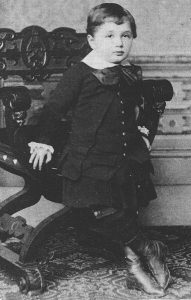
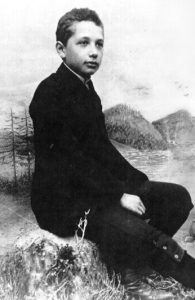 When I think of a genius, my favorite genius always comes to mind…Albert Einstein. He doesn’t have the highest recorded IQ in history, and in fact, is listed as 12th among geniuses. Nevertheless, Genius Day…a day to highlight the greatest minds out there, falls on Albert Einstein’s birthday, so maybe he is a favorite of a lot of people. It makes sense, because Albert Einstein is on of the most famous, iconic, influential, and admired people in history. He was incredibly smart, but oddly not snobby about it, like some geniuses, who rub me the wrong way.
When I think of a genius, my favorite genius always comes to mind…Albert Einstein. He doesn’t have the highest recorded IQ in history, and in fact, is listed as 12th among geniuses. Nevertheless, Genius Day…a day to highlight the greatest minds out there, falls on Albert Einstein’s birthday, so maybe he is a favorite of a lot of people. It makes sense, because Albert Einstein is on of the most famous, iconic, influential, and admired people in history. He was incredibly smart, but oddly not snobby about it, like some geniuses, who rub me the wrong way.
I wonder what it must have been like to be a genius in a day when the system didn’t necessarily recognize such things. Einstein started school, as most children did, in a normal Catholic elementary school, in Munich, Germany, and remained there for 3 years. At that point, they realized that they didn’t have the ability to teach such a child. He was transferred to he Luitpold Gymnasium (now known as the Albert Einstein Gymnasium) at age 8, where he received advanced primary and secondary school education until he left the German Empire seven years later. In German, gymnasium means high school. Einstein excelled at math and physics right from the start. He reached a mathematical level years ahead of his peers. At twelve years old, Einstein taught himself algebra and Euclidean geometry in one summer. Einstein also independently discovered his own original proof of the Pythagorean theorem at age 12. Those were years of intense discovery for him…discoveries that most people could never begin to fathom. At age 13, Einstein was introduced to Kant’s Critique of Pure Reason, and Kant became his favorite philosopher, his tutor stating: “At the time he was still a child, only thirteen years old, yet Kant’s works, incomprehensible to ordinary mortals, seemed to be clear to him.” Probably his best known work was the Theory of Relativity, which actually took in two theories by Albert Einstein: special relativity and general relativity. Concepts introduced by the theories of relativity include spacetime as a unified entity of space and time, relativity of simultaneity, kinematic and gravitational time dilation, and length contraction. If you don’t understand all of that, you are in good company.
It is hard to imagine what it must have been like to attempt to teach such a great mind anything. Seriously, 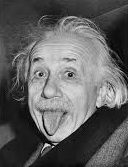
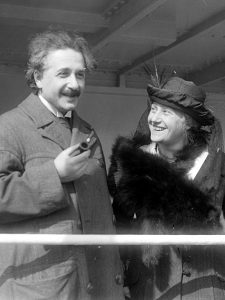 what could an average teacher teach him that he couldn’t learn on his own, and even begin to teach the teacher. I suppose that is the case with any genius, and it must have been a problem for many a teacher, not to mention to the child’s parents. Geniuses are a phenomena that most of us can only imagine, and maybe that is why it is felt that they should have a national day of their own. Often, the day is celebrated by a gathering of confirmed geniuses getting together to “show off” their skills. It is filled with competitions designed to exercise their minds in a group of their peers, which is definitely something they don’t get to do very often. I can’t think of a more fitting day for it to be celebrated than Albert Einstein’s birthday.
what could an average teacher teach him that he couldn’t learn on his own, and even begin to teach the teacher. I suppose that is the case with any genius, and it must have been a problem for many a teacher, not to mention to the child’s parents. Geniuses are a phenomena that most of us can only imagine, and maybe that is why it is felt that they should have a national day of their own. Often, the day is celebrated by a gathering of confirmed geniuses getting together to “show off” their skills. It is filled with competitions designed to exercise their minds in a group of their peers, which is definitely something they don’t get to do very often. I can’t think of a more fitting day for it to be celebrated than Albert Einstein’s birthday.
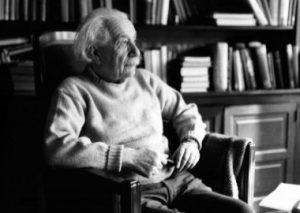 For many years, I have admired Albert Einstein. His mind and his level of intelligence intrigued me, as did his quirkiness. When you think of a genius, your mind automatically produces a picture of a very organized person, who is able to handle any situation, but even geniuses have their issues with things. One well know “weakness” for Einstein was the fact that if something can be written down, it need not take up space in his brain. His brain was very full after all, and clutter was always an issue. That said, if he couldn’t find his train ticket…for the train he took every day from home to work and back…he didn’t know at which stop to get off, because he relied on his ticket to tell him that. I don’t think most of us could even begin to filter our brain in such a way…but Einstein could, and did.
For many years, I have admired Albert Einstein. His mind and his level of intelligence intrigued me, as did his quirkiness. When you think of a genius, your mind automatically produces a picture of a very organized person, who is able to handle any situation, but even geniuses have their issues with things. One well know “weakness” for Einstein was the fact that if something can be written down, it need not take up space in his brain. His brain was very full after all, and clutter was always an issue. That said, if he couldn’t find his train ticket…for the train he took every day from home to work and back…he didn’t know at which stop to get off, because he relied on his ticket to tell him that. I don’t think most of us could even begin to filter our brain in such a way…but Einstein could, and did.
Einstein was a gifted scientist and mathematician. He was most famous for his theory of relativity and the resulting formula relating mass and energy…E = MC². He was the winner of 1921 Nobel Prize in physics for his work on the photoelectric effect, which is also known as the Hertz effect. Einstein was born in Ulm, in the Kingdom of Württemberg in the German Empire, on March 14, 1879. His parents were Hermann Einstein, a salesman and engineer, and Pauline Koch. He didn’t feel the need to celebrate his birthday,saying “It is a known fact that I was born, and that is all that is necessary.” Friends, colleagues and complete strangers still felt the need to send telegrams, cards, letters, gifts, and an elaborate birthday cake.
Being a Jewish man, circumstances in Germany became life threatening for Einstein in the early 1930s, so early in 1933, while on a trip to the United States, he knew he could not go home again, so he moved permanently  to the United States, and worked at Princeton University…a career that would take him to the end of his life on April 18, 1955. Einstein could have been saved, but when he was asked if he wanted to undergo surgery, he refused, saying, “I want to go when I want to go. It is tasteless to prolong life artificially. I have done my share; it is time to go. I will do it elegantly.” After an autopsy, Einstein’s body was cremated and his ashes spread in an undisclosed location.
to the United States, and worked at Princeton University…a career that would take him to the end of his life on April 18, 1955. Einstein could have been saved, but when he was asked if he wanted to undergo surgery, he refused, saying, “I want to go when I want to go. It is tasteless to prolong life artificially. I have done my share; it is time to go. I will do it elegantly.” After an autopsy, Einstein’s body was cremated and his ashes spread in an undisclosed location.
After his passing, another of the multiple quirky aspects of Einstein’s personality came to light when LIFE magazine wrote about a famous picture taken in Albert Einstein’s Princeton office. Einstein’s desk was just as he left it. Here, the picture says, is where Einstein worked, dreamed, lived his singular, principled life to its fullest. “When I was young, all I wanted and expected from life was to sit quietly in some corner doing my work without the public paying attention to me,” said Einstein after being honored at a social function. “And now see what has become of me.”
When I look and Einstein’s desk, it takes me back to the many times my own desk has looked exactly like that. It is another way that the famed scientific and mathematical genius and I are alike. Now, I do not claim to have the IQ of this man, but we do have a few things in common, and the ability to work on top of a stack of papers seems to be one of them. Maybe that and the ability to somewhat filter things out of my mind if they are stored in my phone which could be the same thing as filtering because I have it written down. And because of my shy side, I suppose I can understand his concern over public attention, and yet knowing that sometimes it can’t be helped. When I look at his desk, I can see a man whose mind was fill with many thoughts, making it easy to  lose himself in his thoughts to the point of seeming to ignore those around him. Those who met Einstein recalled his human side. He “walked to work or rode the bus in bad weather; visited the neighbors’ newborn kittens; greeted carolers on winter nights; refused to update his eyeglass prescription; and declined to wear socks because they would get holes in them. But he didn’t seem to mind fuzzy slippers!” He was his own man with his own ideas, and if those ideas didn’t make sense to those around him, it was simply not his problem. On April 18, 1955, Albert Einstein died soon after a blood vessel burst near his heart. The world mourned Einstein’s death, but true to form, at his request, his office and house were not turned into memorials.
lose himself in his thoughts to the point of seeming to ignore those around him. Those who met Einstein recalled his human side. He “walked to work or rode the bus in bad weather; visited the neighbors’ newborn kittens; greeted carolers on winter nights; refused to update his eyeglass prescription; and declined to wear socks because they would get holes in them. But he didn’t seem to mind fuzzy slippers!” He was his own man with his own ideas, and if those ideas didn’t make sense to those around him, it was simply not his problem. On April 18, 1955, Albert Einstein died soon after a blood vessel burst near his heart. The world mourned Einstein’s death, but true to form, at his request, his office and house were not turned into memorials.
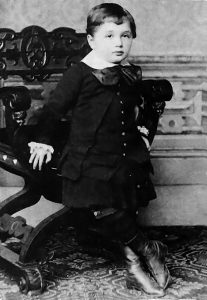
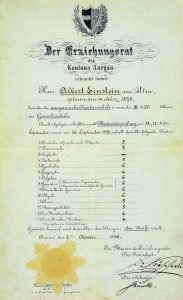 Of the great minds that have lived, I think I like Albert Einstein the best. I suppose some people would disagree with me, but each person relates differently to people, than other people do. I wish I could have met Einstein, because I think we think a lot alike. Of course, I don’t claim to have anywhere near the level of IQ that he had, but I do see some similarities in how we think. We both had the tendency to think that if something can be written down, or in my case stored in my iPhone, then I don’t need to store it in my mind too.
Of the great minds that have lived, I think I like Albert Einstein the best. I suppose some people would disagree with me, but each person relates differently to people, than other people do. I wish I could have met Einstein, because I think we think a lot alike. Of course, I don’t claim to have anywhere near the level of IQ that he had, but I do see some similarities in how we think. We both had the tendency to think that if something can be written down, or in my case stored in my iPhone, then I don’t need to store it in my mind too.
For Einstein, who was a genius, not storing information in his head became a bit of a problem once, when he misplaced the train ticket he had just purchased. When the conductor came by to take his ticket, a frantic Einstein searched unsuccessfully for his ticket. Seeing that he was obviously very upset by this occurrence, the conductor told him, “It’s alright, Mr Einstein, I saw you buy your ticket.” Einstein, still highly upset, said, “It may be alright with you, but if I don’t find my ticket, I don’t know where to get off!” That must have shocked the conductor, because he knew that Albert Einstein rode the same train to and from work every day. Of course, many things are different these days, and I don’t ride a train, plus I’m quite good at navigation, so I don’t see myself not knowing where to get off or to turn, in my case, but it was a real problem to Albert Einstein. It was also an incident that I found amusing, given the mind this man had. Einstein is said to have had an IQ of between 160 and 190, and while I have not been tested, I am quite sure that my IQ is not as high as Einstein’s was, by any stretch of the imagination.
I do know that Einstein had the ability to understand things that would boggle the minds of most people. “Einstein showed that absolute time had to be replaced by a new absolute: the speed of light. Einstein went against the grain and totally dismissed the “Old Physics.” He envisioned a world where space and time are 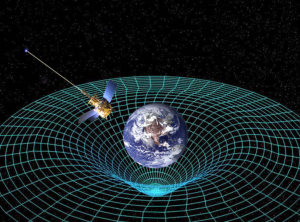
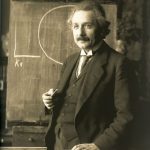 relative and the speed of light is absolute. Prior to that time, it was believed that space and time were absolute and the speed of light was relative. In 1921, Albert Einstein was awarded the Nobel Prize in Physics “for his services to theoretical physics and especially for his discovery of the law of the photoelectric effect”. In 1925, he was awarded the Copley Medal by the Royal Society, which is perhaps the oldest surviving scientific award in the world. Einstein’s mind was so interesting to me, but to him, it was just normal.
relative and the speed of light is absolute. Prior to that time, it was believed that space and time were absolute and the speed of light was relative. In 1921, Albert Einstein was awarded the Nobel Prize in Physics “for his services to theoretical physics and especially for his discovery of the law of the photoelectric effect”. In 1925, he was awarded the Copley Medal by the Royal Society, which is perhaps the oldest surviving scientific award in the world. Einstein’s mind was so interesting to me, but to him, it was just normal.

